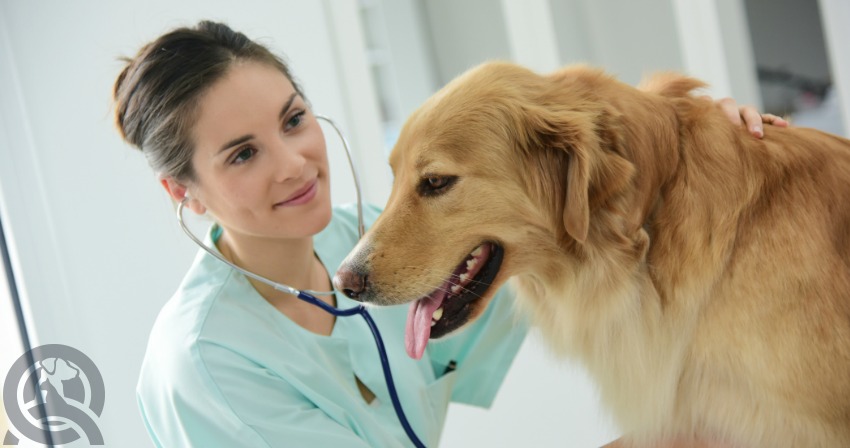You don’t have to tell pet owners just how many dog and cat food options there are on the market – at times, it can be totally overwhelming! Many pet owners forgo commercial pet food completely, deciding instead to go the vegetarian route when it comes to their furry friends’ diets.
But is a diet focused only on grains and vegetables the best option for pets? Is it even safe to assume that they will get all the vitamins and nutrients they need from a vegetarian diet? Stick with us as we run through some of the pros and cons of feeding your pet a vegetarian diet, so you can make the best possible decision for their health (and life span!).
What is vegetarian pet food?
If you’ve never heard of pets being fed a vegetarian diet, don’t worry – it’s certainly not the norm, and for the most part, vegetarian cats and dogs have vegetarian owners. Makes sense, right?
This type of diet is structured around ingredients such as brown rice, digestible potatoes, green peas, and vegetable flavors. Many pet food brands, such as Natural Balance and Royal Canin carry vegetarian formulas, and claim to pack them full of vitamins that provide an alternative to those found in meat-based foods. Through our list below of pros and cons, you can judge the benefits of vegetarian diets for yourself.
Now that you know what vegetarian pet food is, let’s take a look at the pros and cons…
PRO: Less skin allergies
Prior to a grooming appointment, dog groomers are trained to conduct a thorough evaluation of the animal, which includes looking for skin conditions and potential allergies. This is because skin allergies are such a common ailment for pets, specifically dogs, and most often come from a meat protein found in their food. This is an itchy, uncomfortable condition, and should be avoided at all costs for your pup.

By switching to a vegetarian diet, dog owners and groomers alike will notice the decrease of skin allergies, resulting in a happier, healthier pooch!
CON: Lack of vitamins
Pets are living creatures, and like us, they need vitamins in order to live their best lives. Some vitamins can be created by their bodies, but others, such as vitamin D, need to come from their diet. Specifically, they need vitamin D3 which comes from other animals and not through the plant-based ingredients. If they don’t get this particular vitamin, owners will see a drastic difference in the condition of their dog’s coat and overall health (and not in a good way!). While vegetarian pet food does contain nutrients, the absence of certain vitamins is something to be extremely mindful of, as it is only hurting your pal in the long run.
PRO: Fresh ingredients
Although dogs and cats have been fed commercial pet food for many years, that doesn’t mean that the ingredients are good. Many pet food brands claim to use beneficial meat products in their food, but often what’s actually present are fillers, byproducts, and preservatives. This knowledge has led many pet owners to choose a raw diet for their pets, which limits them to completely un-processed raw meat and occasional fruits, vegetables, and eggs. The raw food diet has actually enjoyed huge popularity over the past decade, with a vegetarian diet not far behind.

Vegetarian pet food is plant-based, so no preservatives or byproducts will go into a pet’s body when they consume it. It’s not surprising, therefore, that many pet owners have chosen alternative diets for their furry friends! However, be aware that pesticides are often used on farms…
CON: Health risks
When you choose a vegetarian diet for your pet, you need to be completely aware of the risks associated with it and take them very seriously! In general, vegetarian pet food is healthy and can cut down on skin allergies and harmful contaminants, but it also is lacking in the protein, amino acids, and vitamins dogs and cats need in order to live long, healthy lives. If your pets don’t receive adequate nutrition, they can develop serious medical conditions such as an enlarged heart or eye problems, to name a couple. Missing certain vitamins on a regular basis can also shorten your pet’s lifespan!
If you’re considering turning your dog or cat into a vegetarian, be sure to consult with your veterinarian first. This way, you can make healthy and informed choice for your pet instead of changing their diet in a shocking – and potentially harmful – way.
PRO: Less expensive
In the long run, vegetarian pet food is going to end up costing you less than regular, meat-based food. Keep in mind that not all vegetarian pet food is going to be this way – you’ll want to really do your research into food that boasts a high volume of protein, such as Evolution Pet Food, which guarantees that pets will eat 30% less than regular food. How’s that for saving some money?
CON: More health maintenance required
Dogs and cats need to visit their veterinarian from time to time for check-ups, blood work, and other issues that may arise. For the majority of healthy dogs and cats, a visit to the vet twice a year will ensure any issues are caught early.

However, if you choose to switch their meat-based diet to a vegetarian one, you can expect to take them to the vet more frequently. This type of diet is missing certain elements, and there might be some chemically synthesized nutrients in there as replacements. A trained veterinarian will need to conduct regular bloodwork and possibly other exams to ensure that your pet is getting the proper nutrition.
You’ll also need to pay closer attention to a pet who is on a vegetarian diet – watch for any changes in urine or bowel habits, as well as temperament. Diet plays a huge role in the overall health of your pet, so pay close attention.
Switching your dog or cat to a vegetarian-based diet is not a decision to be made lightly. Do your research, consult with your veterinarian, and weigh these pros and cons in order to make the best possible choice!
There are some foods that should never be consumed by your pet – read on for 11 to keep out of their reach!



